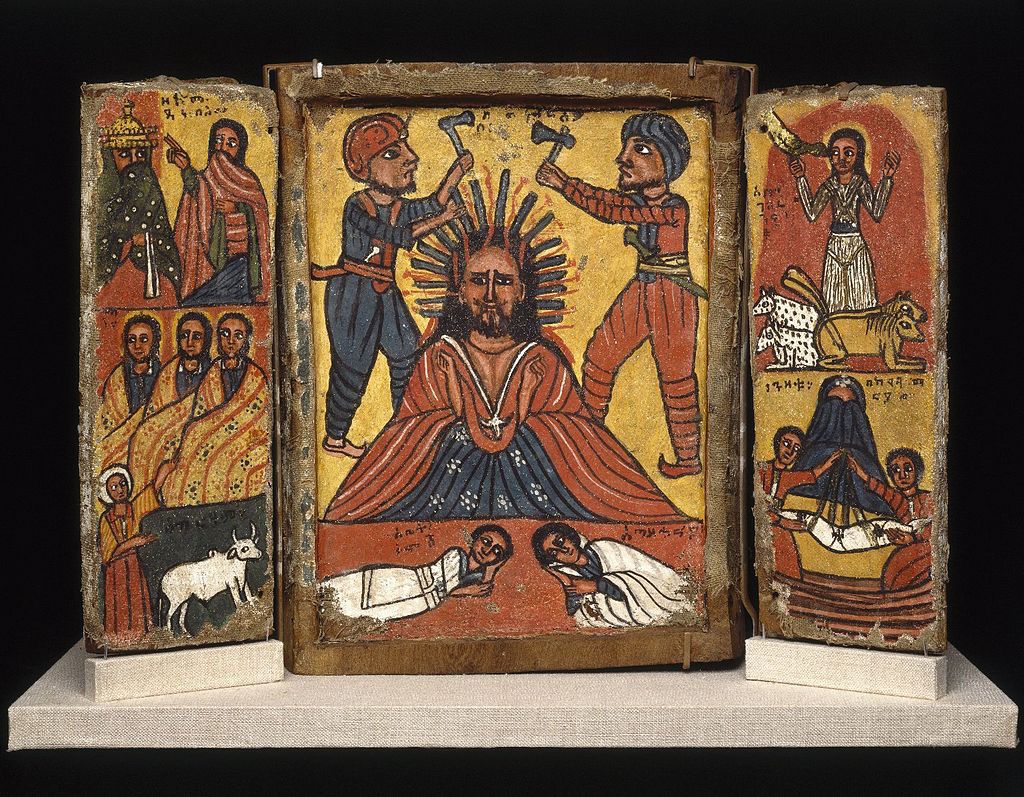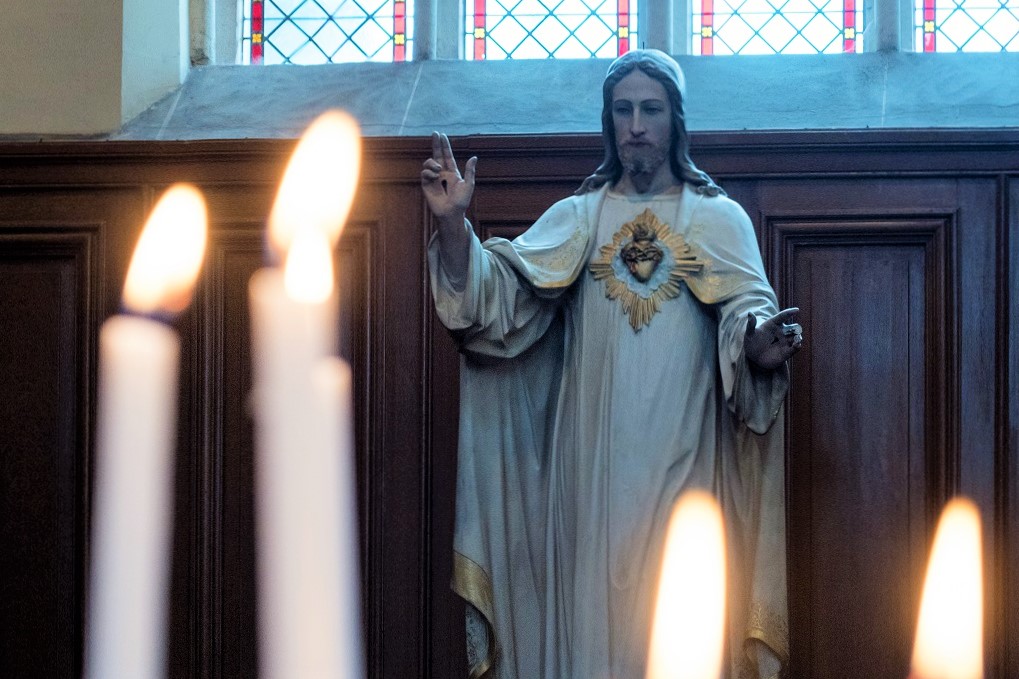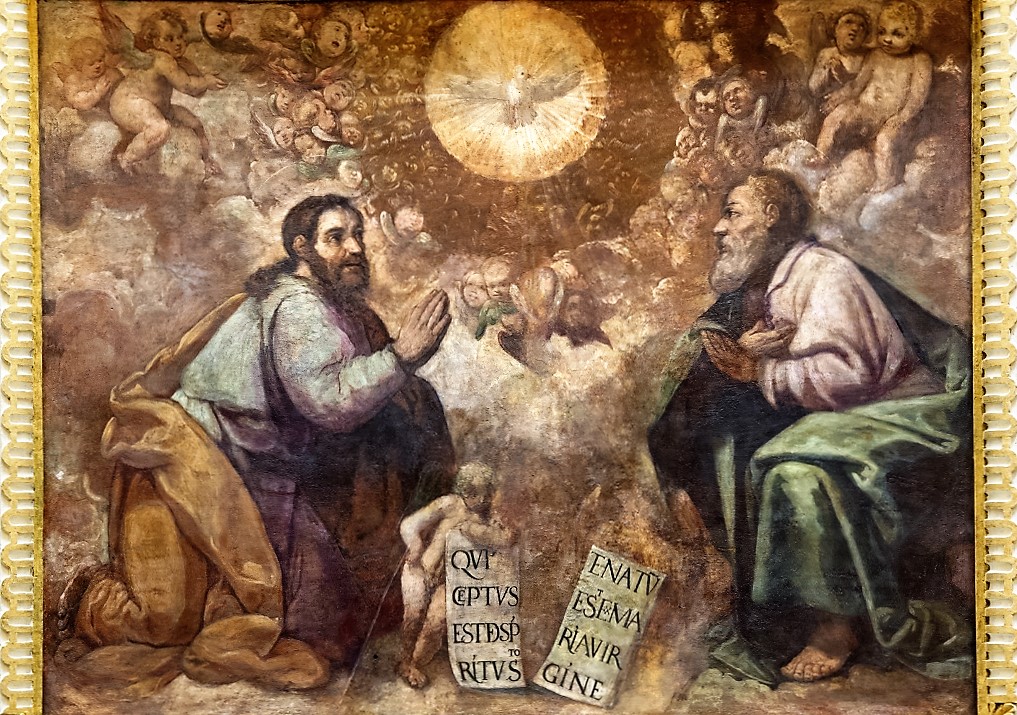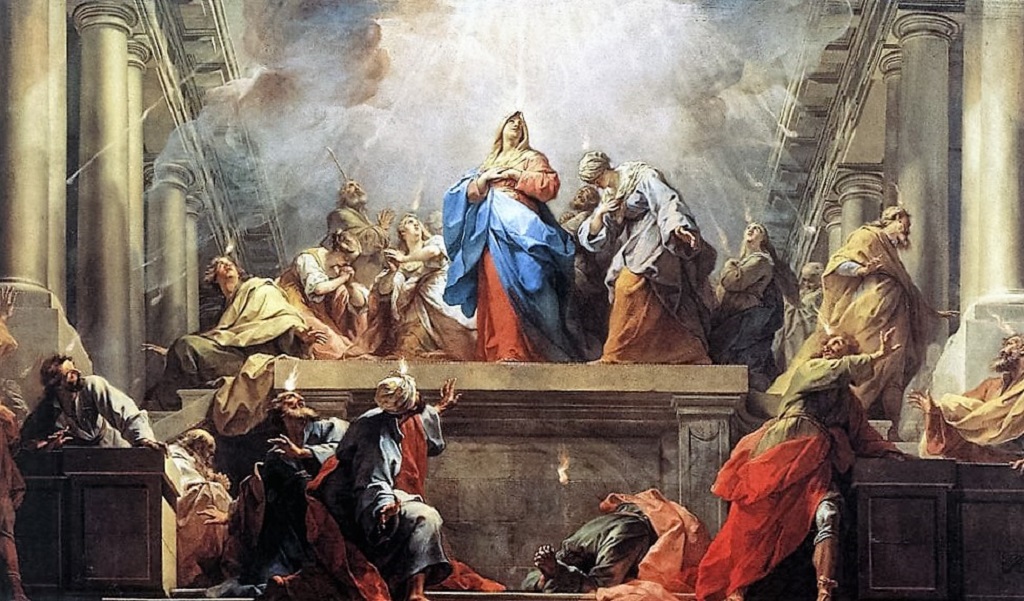[Above image: Ethiopian triptych, Christ the King, artist unknown. Courtesy of the Brooklyn Museum.]
Sunday, November 20 is the final Sunday of the liturgical year for 2016, marked by the Church as the Solemnity of Christ the King.
Christ is indeed King. He rules all: an eternal Kingdom, inhabited by angels and saints. Christ must also be King of our hearts: the Monarch of the Universe, writ small for each human being. He is not a king of earthly riches, but one of poverty, poured out wholly on the cross for our redemption. He is a king of lowly estate, who had no place to rest His head yet one who commanded storms to cease and turned water into wine. His Kingdom embraces the lowliest, the disenfranchised, the tax collector and prostitute, the sinners-who-become-saints. In Christ’s Kingdom, the most costly perfumes and luxurious oils are meant for the all – wealthy and beggar alike. The greatest treasure of his kingdom is His flesh and blood, bread and wine blessed and broken, earthly food that offers eternal life.
Like any king, He issues an edict to His subjects. Yet His commands are like no other ruler’s:
Then the king will say to those on his right,
‘Come, you who are blessed by my Father.
Inherit the kingdom prepared for you from the foundation of the world.
For I was hungry and you gave me food,
I was thirsty and you gave me drink,
a stranger and you welcomed me,
naked and you clothed me,
ill and you cared for me,
in prison and you visited me.’
Our King does not demand a tax on His people; He asks for us to see His face reflected in the hungry, the thirsty, the stranger, the imprisoned. He invites all to His feast, His kingly banquet, His home. The banquet table is now an altar, spread not with rich food and sweet drink, but with His own Body and Blood. No matter how we arrive at this banquet – whether in embroidered robes or tattered cloth – we are welcomed. The price of admission is not coins, but faith. The guests at this feast turn to each other with a kiss of peace and then partake of His most glorious offerings.
[G]race to you and peace from him who is and who was and who is to come, and from the seven spirits before his throne,and from Jesus Christ, the faithful witness, the firstborn of the dead and ruler of the kings of the earth. To him who loves us and has freed us from our sins by his blood,who has made us into a kingdom, priests for his God and Father, to him be glory and power forever [and ever]. Amen.
Behold, he is coming amid the clouds,
and every eye will see him,
even those who pierced him.
All the peoples of the earth will lament him
Yes. Amen.
Your invitation is placed before you. All you need do is come to the feast. Will you join your King?




